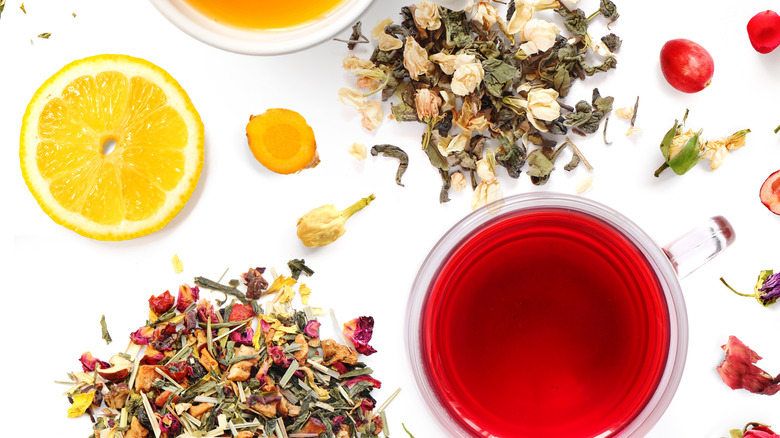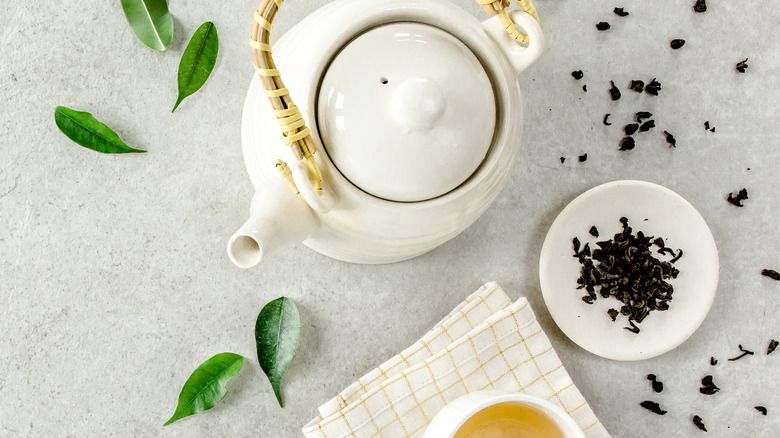Does All Tea Have Caffeine?
There's nothing quite like a nice mug of hot tea, especially at night. But before you go reaching for your favorite tea leaves, you might want to double-check the caffeine content if you're planning on sleeping anytime soon. Although, checking whether a tea is green, black, or even herbal isn't the only thing you'll need to look out for when checking how many milligrams of caffeine are in your mug of tea.
According to The Tea Table, heat is actually one of the most important factors when it comes to determining how much caffeine is in your tea. "The hotter the water, the more caffeine is released," the website reports, while also explaining that water temperature is especially important for loose leaf teas since water temperature doesn't affect bagged teas as much.
Another important factor in determining caffeine levels is how long you steep your tea. A study in the Journal of Analytical Toxicology reported that "the longer any caffeinated tea brewed, the more caffeine made its way into the cup" (via SeriousEats).
Certain types of tea are caffeine-free
So, does all tea contain caffeine? According to Whittard, the short answer is yes, all tea contains some amount of caffeine. This is because they all come from the same plant, known as the camellia sinensis. The only exception, however, are fruit and herbal infused teas.
According to The Whistling Kettle, the majority of herbal teas are made with plants other than the camellia sinensis plant and will be completely free of caffeine. Herbal tea blends often include different dried fruits, flowers, and herbs.
Per Healthline, some healthy herbal teas you can try at home include chamomile, peppermint, ginger, hibiscus, and echinacea tea — all of which are thought to offer different health benefits. Herbal teas like chamomile, for example, are supposed to help you relax or calm you down, while also promoting better sleep. Meanwhile, peppermint and ginger-based teas are thought to help if your stomach is bothering you.

